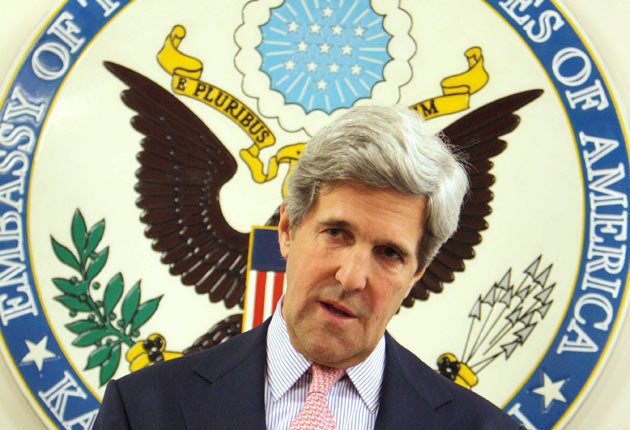US warns withdrawal will leave Afghanistan in economic crisis

Afghanistan is so dependent on foreign aid that it could face an economic crisis when the West ends its military intervention in the country in 2014, a United States Senate report warned yesterday, criticising the way the US had sunk billions into unsustainable projects in the shattered country.
The US is spending $320m (£195m) a month in Afghanistan on reconstruction projects alone and has spent $18.8bn since it invaded in 2001 – more than it has spent in any other country. President Barack Obama's administration has requested a further $3.2bn for projects in the coming fiscal year.
Yet the enormously expensive nation-building effort has distorted the Afghan economy to the extent that 97 per cent of its GDP is linked to foreign spending. "We've created a... wartime economy" that is a "huge distortion" of Afghanistan's revenue production, US Senator John Kerry told The Washington Post. "It's very dangerous, and we have to get a handle on it rapidly."
The two-year study described how misspent foreign aid fuels corruption and actually contributes to insecurity. It also criticised the excessive use and poor oversight of contractors. And although it provided examples of successful projects, it slammed the way that a measure of success is how quickly projects spend their funds.
In one example, it described the Performance-Based Governors' Fund, which can dispense up to $100,000 a month to provincial governors to help to cover local expenses and development projects for their constituents. But such large sums represented "a tidal wave of funding" that local officials were incapable of "spending wisely".
It also looked at the way aid money is used to stabilise areas the military has cleared of Taliban fighters, a key tenet of the counter-insurgency doctrine of US General David Petraeus. Although this can sometimes work as a short-term fix, the flood of cash overwhelms local economies, leaving them wrecked when the aid dries up.
One of the biggest criticisms of such spending is that it penalises peaceful districts and rewards violent ones. "The evidence that stabilisation programmes promote stability in Afghanistan is limited. Some research suggests the opposite," the report said.
"Afghanistan could suffer a severe economic depression when foreign troops leave in 2014 unless the proper planning begins now," it said.
On a recent trip to Afghanistan, Defence Secretary Robert Gates called for a "modest" decrease of about 3,000 troops but many lawmakers in Washington are calling for as many as 30,000 to be home by Christmas.
Join our commenting forum
Join thought-provoking conversations, follow other Independent readers and see their replies
Comments
Bookmark popover
Removed from bookmarks